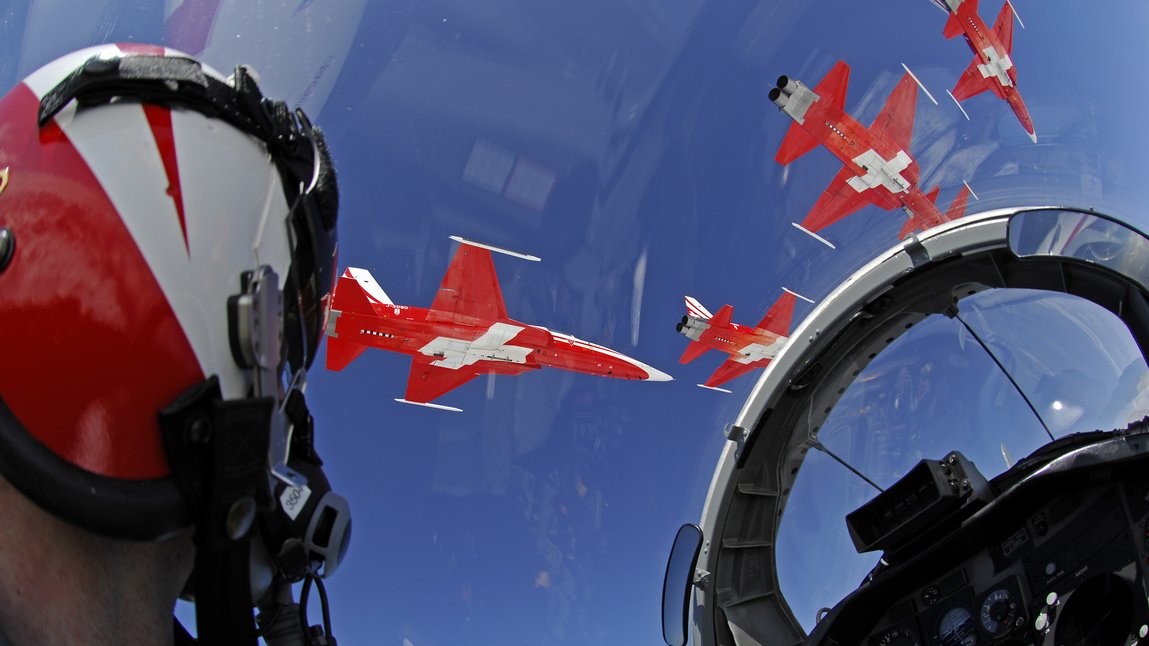The pilot was convicted of negligent misuse and squandering of material. The court refrained from the other charges. However, for aviation and ultimately for all other high-risk organizations in Switzerland, the fact that the court found culpable conduct in this incident is significant. This is true even if the present guilty verdict comes from a military court. This is because the verdict joins the unpleasant decisions of various civilian courts (up to the Federal Supreme Court), which punished air traffic controllers for misconducts that were neither intentional nor grossly negligent. In the present case, too, there is nothing of gross negligence or intent involved. Thus, this judgment also reveals to us that the Swiss courts have difficulty in even remotely understanding the meaning of human action in highly complex systems and in extremely specific situations and (have to) rely on laws that were written when the world still looked very different.
Whoever makes mistakes will be punished. A paradigm that causes collateral damage.
The consequences of these guilty pleas are significant for the organizations involved because, on the one hand, they cause employees and leaders to avoid any exposure, to stop taking responsibility, and to just do exactly what they are told. Thus, such guilty verdicts promote the unfortunate compliance orientation and cover-my-ass strategy that drives self-responsibility out of the company and leaves a team in underdog mode. Germany sends its regards. Such a culture is the beginning of doom for an Air Force. It must be able to count on people who, under extreme stress, have the willingness to make decisions that are purposeful. People who do not ask their superiors for advice at the slightest uncertainty. A superior who, nota bene, sits in the operations center and has no situationally relevant information.
The ambiguous approach to risks
And on the other hand, such guilty verdicts as in the present case leave a stale aftertaste. After all, display flying is a dangerous business per se. But one that the state not only tolerates, but supports for understandable reasons. If an incident occurs in the process, an individual is punished and the whole context, and thus the desire for formation displays, suddenly no longer matters. This is an indecent foreshortening. Or do you also punish your children if you have encouraged them to bake a cake themselves and they then burn their fingers on the stove? The guilty verdict just handed down reveals the ambiguity of society in dealing with risks in an exemplary manner. The system has found a victim, but the games are to continue. Is this still honest?
Responsibility in high-risk organizations
As for context: In the present case, the accused pilot was the anciennity youngest in the team. He was trained from the F/A 18 to the F-5 to be able to fly in the Patrouille Suisse. His experience on the 'Tiger F-5' was accordingly small. In 2016, the demonstration program included for him (number three) and the number two in the formation new joining maneuvers, which in the past were not expected of the youngsters. The joining maneuvers into a formation are definitely the most demanding from a flying point of view. In such a context, it is not surprising that even a hardened Hornet pilot can be overtaxed in the short term. And anyone who doesn't let this idea get to them has no idea what it feels like when, in a descending turn under acceleration, you turn your head all the way out to be able to maintain visual contact and try to fit into the formation. Anyone who then says that you have to keep to the regulations, which always demand a minimum distance of three meters from you, reveals himself to be an administrator and compliance pope who is out of touch with reality. This inability of the court to put itself in the situation was palpable in the courtroom during the questioning of the witnesses. It's not that the judges didn't make a good faith effort to understand the situation. But how do you explain to a layman in ten minutes a discipline that took experts several years to learn? It was downright grotesque. And one should not blame the judges for not being able to distinguish the difference between the flight path of an airplane that deviates from the horizontal plane and the one that deviates upward or downward from the path of the plane in front of it. But the system allows, indeed requires them to judge anyway. And they have to play the man. The criminal law wants it that way. It always and still understands the actions of a person as unaffected by the system that surrounds the person. This is an inexcusable omission in a time in which we deeply involve the human being in highly complex systems. Or does anyone still believe that a human being alone would be able to bring a 500-ton commercial airliner to its destination independently in flights of over 4000 miles in all conceivable weather and environmental conditions without massive support from technical systems? And does anyone seriously still believe that these systems interact with the pilot in a way that does not compromise his 100% control? Is it fair to always and consistently hold such a person fully responsible for the outcome regardless of the systems supporting him? No, it isn't. It is untenable from a moral perspective.
Backlog in criminal law
Criminal law is old, ancient. This is reflected not only in the categorical exclusion of systemic components and components influencing the result, but also in its terminology. In the present case, the pilot was charged with 'negligent misuse and squandering of material'. I don't know how you feel about these terms. For me, they actually have no connection with what happened. I don't see in what way the pilot should have used the aircraft for other than demonstration purposes and he should have been guilty of misuse. Also, in my understanding, in order to squander material, it needs a malicious intent to get rid of material recklessly. Not even the prosecutor had imputed the intent to him. I understand that my understanding of language does not have to coincide with legal terms. But I was by far not the only one in the courtroom who had trouble with these completely outdated terms.
There is much to be done in criminal law if it wants to remain an accepted part of our society. And there is much to be done in training prosecutors and judges; not only for the sake of justice, but also for the sake of the safety and combat readiness of our Air Force.



